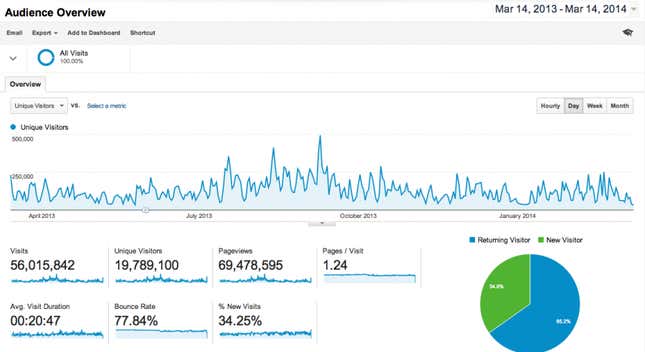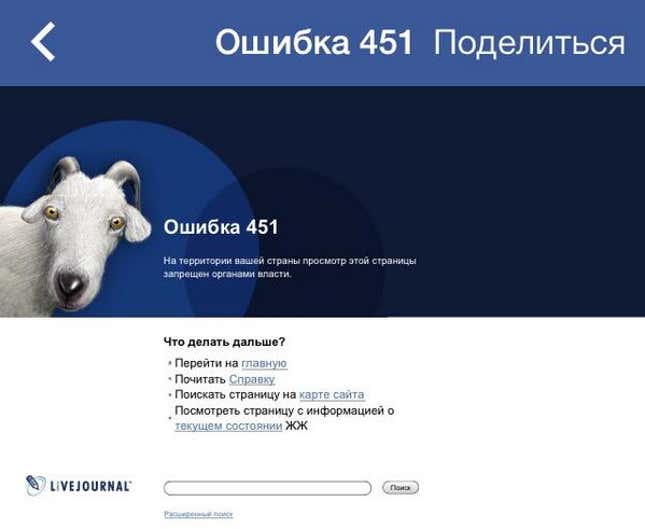With tensions rising over Crimea, Russia yesterday blocked a number of opposition websites. One of them is the blog of Alexei Navalny, an opposition leader currently under house arrest, who is known for publishing documents about official corruption online. In response to the censorship, he published what he says are his blog’s traffic statistics (link in Russian) for the past 12 months, showing 20 million unique visitors (note that it’s not possible for us to verify this independently). Assuming most of them are from Russia, it’s a not-insignificant chunk of the country’s population of 143 million—good reason for the authorities to be worried:

It’s not the first time the Russian telecoms regulator, Roskomnadzor, has blocked internet content, but this seems to be the most heavy-handed use so far of a recent law that allows the blocking of “extremist” websites. (Earlier this month, several pages relating to the protests in Ukraine were blocked.) Aside from Navalny’s blog, the sites now inaccessible in Russia reportedly include the news sites grani.ru, ej.ru, and Ekho Moskvy, and the site of the opposition leader and former chess champion Garry Kasparov.
A recent survey by the Levada Center, the most independent polling organization in Russia, found that 63% of Russians think state-owned media are covering the events in Crimea entirely or mostly objectively (link in Russian). The 29% who think otherwise will now have fewer places to go for their news.
But at least they won’t be in any doubt about why. Navalny also published the image that Livejournal, the blogging platform he uses—and the one that dominates the Russian blogosphere—shows to Russian internet users who try to visit his blog. Below error code 451, the internet’s code indicating that a site is unavailable for legal reasons, appears the message: “In your country the viewing of this page is forbidden by the agencies of the state”—or, to translate literally, “by the organs of power.”

